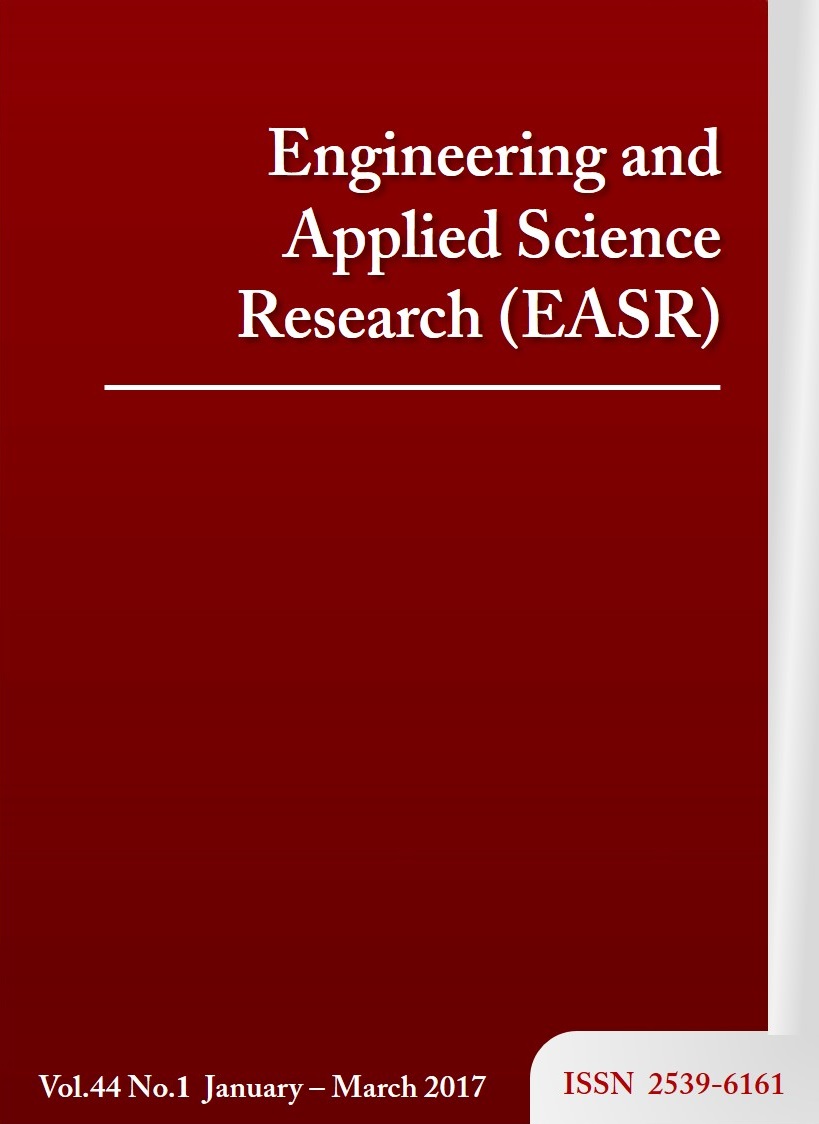Measurement of the importance of knowledge areas and competency levels of construction project managers in the Lao PDR
Main Article Content
Abstract
This paper presents a ranking of the important levels of knowledge and the results of competency level measurements of construction project managers (PMs) in the Lao PDR. The important levels of knowledge in various areas were analyzed and ranked using the Analytic Hierarchy Process (AHP) method, and their competency levels were measured using a Relative Level Index (RLI) from the perceptions of primary stakeholders such as contractors, consultants, and project owners. The results of this ranking showed that time, quality, cost, and safety management were the most important knowledge areas for construction PMs in the Lao PDR. However, the relative importance of these knowledge areas for construction PMs was different among the various stakeholders. Moreover, the result of these measurements indicated that the levels of competency of construction PMs in the Lao PDR is medium to low. In spite of this, construction PMs’ are perceived by contractors to be more competent than by consultants and project owners.
Article Details
This work is licensed under a Creative Commons Attribution-NonCommercial-NoDerivatives 4.0 International License.
References
Kwok C. Competencies of project managers in Hong Kong [Thesis]. Hong Kong: Department of Real Estate and Construction, Faculty of Architecture, Hong Kong University; 2004.
Roseau M. Project management for engineers. New York: Van Nostrand Reinhold Publications; 1984.
United Nation of Development Program (UNDP). Human development report. Canada: Lowe–Martin Group; 2009.
Awazu Y. Informal network player, knowledge integration, and competitive advantage. J Knowl Manag. 2004;8:62-70.
Renck R, Kahn EL, Gardner BB. Continuing education R&D careers. DSF report 69-20. Washington DC: Social Research Inc., Government Printing Office; 1969.
Hermosillo WJ. Grabot B, Geneste L, Aguirre O. Competence and knowledge: Introducing human resources in BPR. Proceeding of the ACS-SCM Conference; 2002 Oct23-25; Szczecin, Poland. p. 245-52.
Maglitta J. Know-How, Inc. Computerworld 1996; 30 (1).
Project Management Institute. Project Management Body of Knowledge (PMBOK). USA: Project Management Institute; 1996.
Spencer LM, Spencer SM. Competency at work: Model of superior performance. New York: John Wiley & Sons; 1993.
Harzallah M. Human resource competency management in enterprise engineering. Proceedings of the IFAC World Congress 1999; 1999 Jul 5-9; Beijing, China. p. 181-6.
Yamane T. Statistics: An introductory analysis. New York: Harper and Row Publishers; 1973.
Saaty T. Fundamentals of decision making with the analytic hierarchy process. Pittsburgh: RWS Publications; 2000.
Gushgar SK, Francis PA, Saklou JH. Skills critical to long-term profitability of engineering firms. J Manag Eng. 1997; 13(2): 46-56.
Hang S. A study of important knowledge and competency levels of construction project managers: case studies in Cambodia, Lao PDR and Thailand [Thesis]. Bangkok, Thailand: Department of Civil Engineering, Faculty of Engineering, Chulalongkorn University; 2011.



